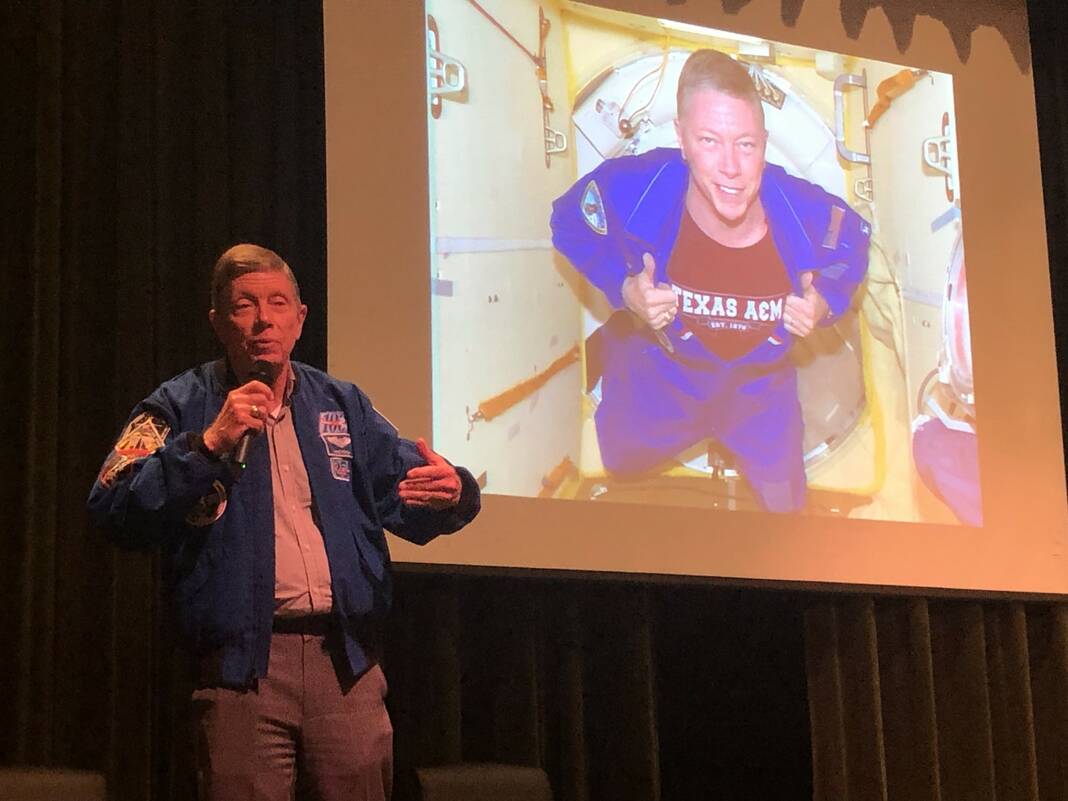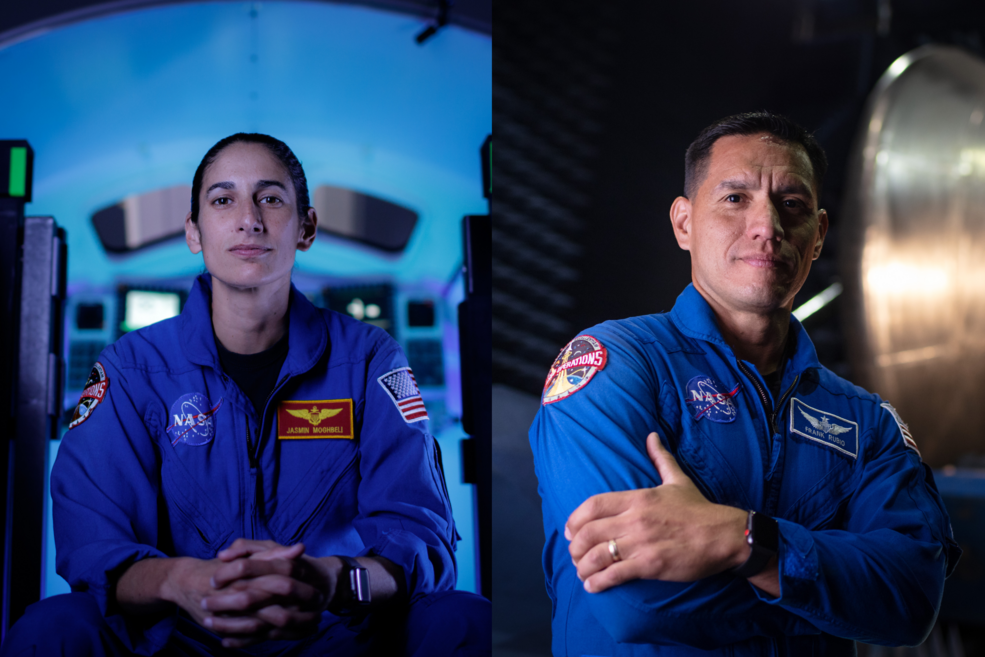|
Only have a minute? Listen instead
Getting your Trinity Audio player ready...
|

NASA astronauts Jasmin Moghbeli and Frank Rubio on the International Space Station answered questions from Brownsville Independent School District students via live downlink Wednesday morning, their weightless condition obvious and their candor drawing smiles.
The event sponsored by the South Texas Astronomical Society and BISD was streamed live on YouTube, NASA TV, the NASA smartphone app and on the STARS website.
An audience of Pace technology students viewed the downlink interchange as it was beamed from the ISS to the Johnson Space Center in Houston and then to Pace.
The questions were pre-recorded and the students who asked them sat in the front row. After a few early glitches, the conversation took place as seamlessly as a cell phone conversation anywhere on Earth.
“Do you think that animals will ever be able to cohabitate along-side humans in space?” middle school student Mia Paola asked.
Moghbeli answered that animals actually traveled into space before humans, the U.S. sending monkeys and Russia sending dogs.
“But now, living here on the space station thinking about my family back home, we usually have dogs as pets, and I’m thinking they might have a hard time,” she said. “They might not hang onto the hand rails. I think we could make some provision for them and adapt a bit and put some structure inside here. I think we could cohabitate with animals.”
Moghbeli only got to the space station a few days ago on the SpaceX Crew 7 flight. This was her first in-flight education downlink.
Rubio, meanwhile, has the record for longest mission to the ISS, having been there since September 2022 due to a Russian Soyuz rocket not being available to take him back to Earth.

Rubio took the question when Peter, an elementary student, asked, “how scary is it to be on a rocket?”
“It’s actually pretty cool. It wasn’t very scary at all. Jasmine came up on a Dragon spacecraft. I came up on a Soyuz, so two totally different rockets, but the cool thing is we trained for this mission for almost two years. Constantly during that training we were practicing what to do if things go wrong and so all you ever do is practice emergencies, time after time because it is critical that you do the right thing if those things happen. But on the day that you launch everything goes perfectly, so actually it’s pretty chill compared to the simulation that you’ve done up until that point,” Rubio said.
“The other thing is that you’re so focused on making sure all the right things are going on, reading your instruments and making sure the rocket is healthy, that you really don’t have time to think about what’s actually going on and that you’re sitting on top of all that rocket fuel and the fact that you’re speeding up from zero to almost 15,000 miles per hour. All that stuff is pretty cool, but the reality is that most of us are focused on what is going on. And it’s not until after we get into space that we think about that is pretty amazing,” he added.
The in-person event at Pace featured presentations by Col. Michael Fossum, a former NASA astronaut now the Chief Operating Officer at Texas A&M University in Galveston, and Alex Zamora, an Intra-Vehicular Activity (IVA) Operations Flight Controller at NASA’s Johnson Space Center.
Fossum grew up in McAllen and Zamora in Browsville.
Fossum, who famously was rejected 13 times as a NASA astronaut and didn’t become one until he was in his 50s, said it’s important not to give up.
“I grew up in the same kind of neighborhood you grew up in,” Fossum said at one point. “It’s sometimes tough out there. And I also knew it’s real easy for people to say no. Real people. Real easy for people to laugh and say no, you can’t, or you shouldn’t. But to get to yes is harder. To understand no doesn’t mean never, it means not yet, and get rejected by NASA so many times … a year-and-a-half long process and then to find out you didn’t get selected — again, again again. You didn’t even get interviewed one time, so keep leaning forward,” he said.




